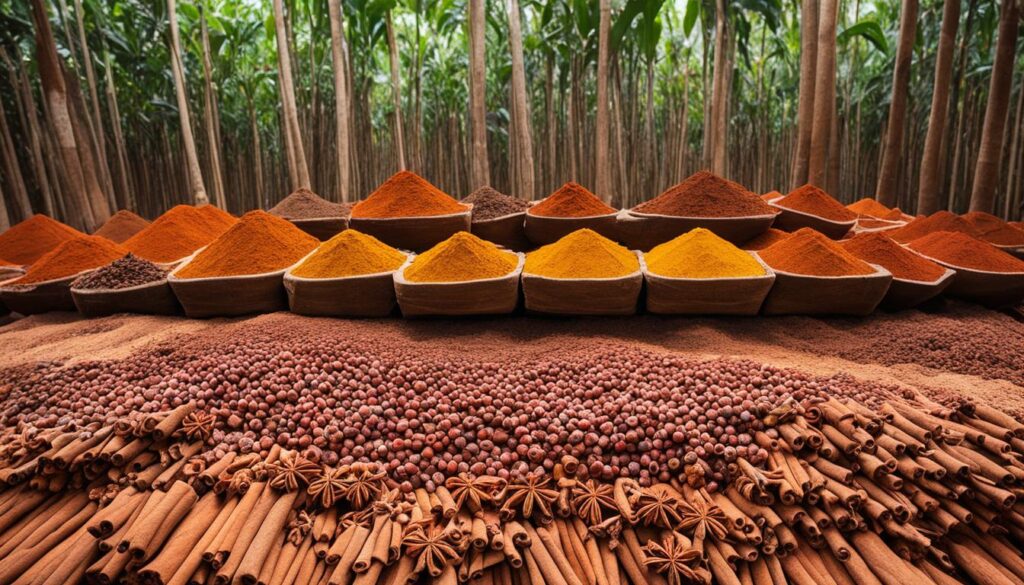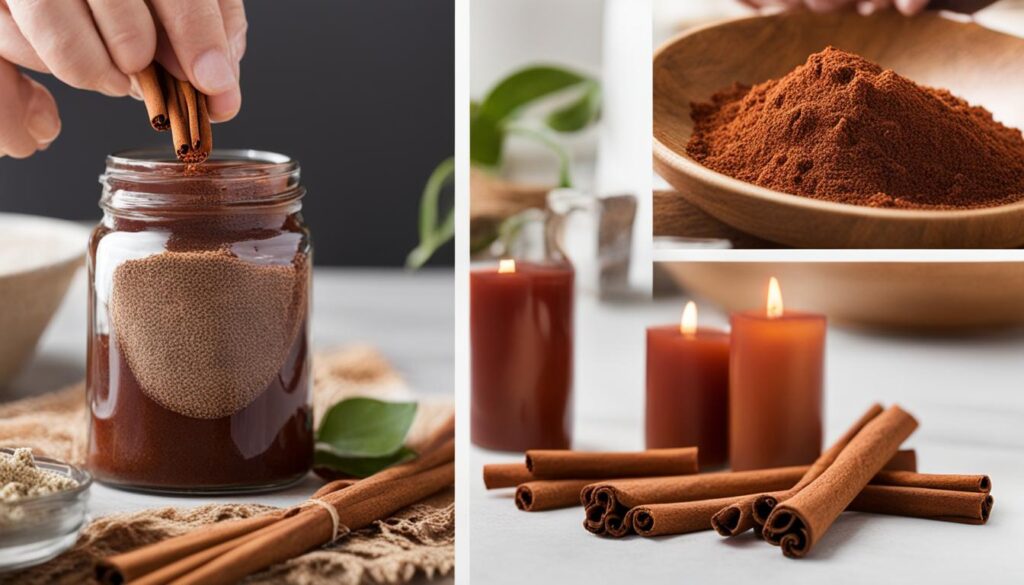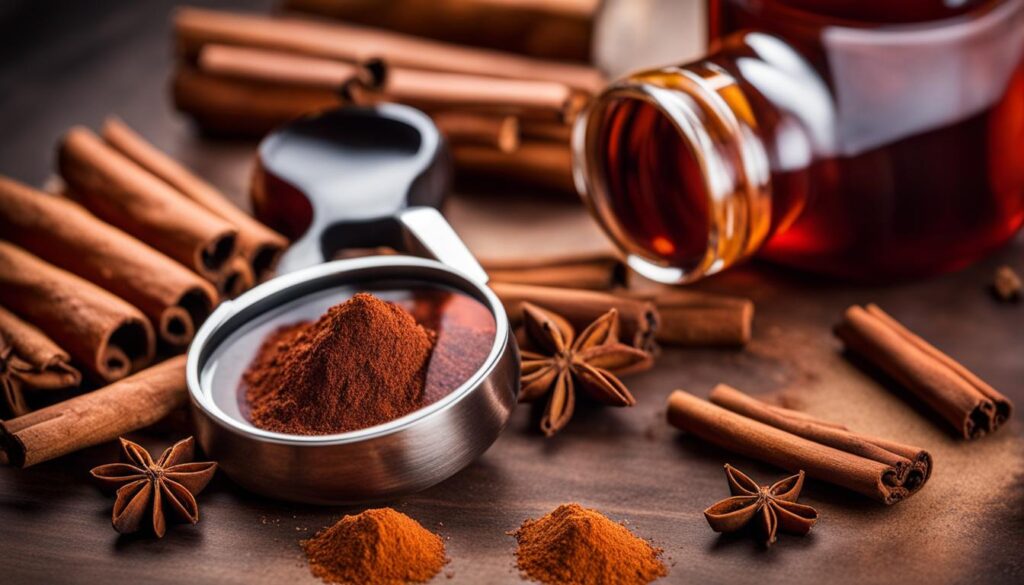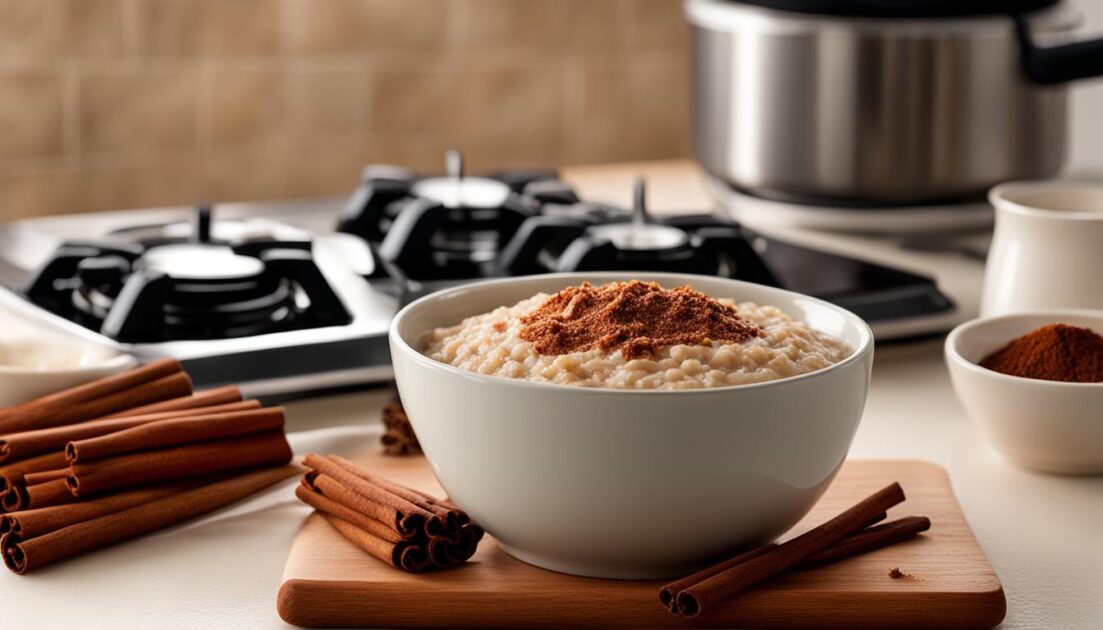Cinnamon extract is a versatile ingredient with a wide range of uses and potential health benefits. Derived from the bark of cinnamon trees, this spice has been valued for its medicinal properties for centuries. Recent scientific research has supported many of its traditional uses and highlighted its potential benefits in various applications.
One of the key health benefits of cinnamon extract is its rich antioxidant content. Antioxidants help protect the body against oxidative damage, which can contribute to various chronic diseases. Cinnamon extract may also help manage blood sugars, making it a potential aid for diabetes management. Additionally, it has anti-inflammatory properties that may reduce the risk of heart disease and other inflammatory conditions.
In culinary applications, cinnamon extract adds a warm and sweet flavor to dishes, making it a popular ingredient in baking, oatmeal, and beverages like coffee and tea. Its natural properties also extend to personal care and skincare, where it can be found in facial masks, toners, and oral care products for its antibacterial and antifungal properties. Moreover, cinnamon extract can be used in household items as an air freshener and natural pest control option.
When considering cinnamon extract, it is essential to select a high-quality product. Look for organic or sustainably sourced options without additives or artificial ingredients. Proper storage in a cool, dry place will help maintain the freshness and potency of the extract.
In conclusion, cinnamon extract offers numerous uses and promising health benefits. Whether it’s enhancing the flavor of your favorite recipes, improving your skincare routine, or adding natural freshness to your home, cinnamon extract can be a valuable addition to your daily life.
Key Takeaways:
- Cinnamon extract has potential health benefits, including managing blood sugars, reducing inflammation, and protecting against heart disease.
- Its culinary uses range from adding flavor to baked goods and beverages to using it as a spice rub for meats.
- Cinnamon extract can be incorporated into personal care products for skincare benefits, such as fighting acne and reducing inflammation.
- In household applications, it can serve as a natural air freshener and pest control option.
- When selecting cinnamon extract, choose a high-quality, organic or sustainably sourced product, and store it in a cool, dry place for optimal freshness.
The History and Origin of Cinnamon

Cinnamon has a long and fascinating history, dating back thousands of years to Ancient Egypt. It was highly prized and considered a rare and valuable spice, often reserved for royalty and used in religious ceremonies. Today, cinnamon is readily available in supermarkets and used in a variety of culinary creations.
Derived from the inner bark of trees, cinnamon comes in two main types: Ceylon cinnamon and Cassia cinnamon. Ceylon cinnamon, also known as “true” cinnamon, is considered to be of higher quality and has a sweeter and more delicate flavor. On the other hand, Cassia cinnamon is the most commonly found variety and has a stronger and slightly spicier taste.
The unique aroma and distinct flavor of cinnamon can be attributed to a compound called cinnamaldehyde, which not only adds a delightful taste to dishes but also possesses powerful health benefits.
“Cinnamon, the sweet spice that has accompanied mankind for centuries, holds a special place in our history and culture. Its enticing flavor and numerous uses have made it a beloved ingredient in cuisines around the world.”
The Ancient Egyptians and Cinnamon
The Ancient Egyptians were among the first to recognize the value of cinnamon and incorporated it into their daily lives. It was used in embalming rituals, as incense, and even as a currency. The Pharaohs valued cinnamon for its rich aroma and believed it had divine properties.
Cinnamon in Ancient Greece and Rome
The Greeks and Romans were also captivated by cinnamon. They imported it from the East and used it to enhance the flavor of food and wine. It was believed to have medicinal properties and was utilized in the treatment of various ailments.
Explorers and the Spice Trade
During the Age of Exploration, European explorers embarked on voyages and quests to find new trade routes and sources of valuable spices, including cinnamon. These expeditions shaped the course of history and led to the discovery of new lands and cultures.
Modern-Day Cinnamon
Today, cinnamon has become a staple ingredient in kitchens worldwide. Its warm and sweet taste adds depth to both sweet and savory dishes, making it a versatile spice in various cuisines. Whether it’s sprinkled on oatmeal, added to baked goods, or used in beverages like coffee and tea, cinnamon continues to enchant taste buds and delight food enthusiasts.
From its ancient origins to its modern-day popularity, cinnamon remains an integral part of our culinary heritage. Its captivating history, enticing aroma, and numerous culinary uses make it a cherished spice that continues to be celebrated and enjoyed.
Key Components and Properties of Cinnamon Extract

Cinnamon extract is a powerhouse of various key components that contribute to its numerous health benefits. One of the primary compounds found in cinnamon extract is cinnamaldehyde, which is responsible for its distinct aroma and many therapeutic properties.
Here are some key components of cinnamon extract:
- Cinnamaldehyde: This compound is known for its anti-inflammatory, antioxidant, and antimicrobial properties. It gives cinnamon extract its characteristic flavor and has been associated with numerous health benefits.
- Antioxidants: Cinnamon extract is rich in antioxidants, such as polyphenols and flavonoids, which help protect the body against free radicals and oxidative stress. These antioxidants help reduce inflammation and support overall health.
- Anti-inflammatory properties: Cinnamon extract has been found to have potent anti-inflammatory properties. It can help suppress inflammatory molecules and pathways in the body, leading to a reduced risk of chronic diseases like heart disease, diabetes, and certain types of cancer.
- Impact on blood sugar levels: Cinnamon extract has been shown to improve insulin sensitivity and lower blood sugar levels, making it beneficial for individuals with diabetes or insulin resistance. It can enhance the body’s ability to metabolize glucose and regulate blood sugar levels.
- Neuroprotective effects: Research suggests that cinnamon extract may have neuroprotective properties, which can help protect against neurodegenerative diseases like Alzheimer’s and Parkinson’s. It may enhance cognitive function and memory.
- Anti-cancer potential: Some studies have indicated that cinnamon extract exhibits anti-cancer properties. It may help inhibit the growth of cancer cells and induce apoptosis (cell death) in certain types of cancer, although further research is needed to fully understand its effectiveness.
- Antimicrobial and anti-viral activities: Cinnamon extract has shown promising antimicrobial and anti-viral properties. It may help fight against bacteria, fungi, and viruses, making it a potential natural remedy for certain infections.
With its impressive array of key components and properties, cinnamon extract proves to be a versatile and valuable ingredient that can enhance overall well-being.
Key Components of Cinnamon Extract
| Key Components | Properties |
|---|---|
| Cinnamaldehyde | Anti-inflammatory, antioxidant, antimicrobial |
| Antioxidants | Protect against free radicals, reduce inflammation |
| Anti-inflammatory properties | Decrease the risk of chronic diseases |
| Impact on blood sugar levels | Improve insulin sensitivity, lower blood sugar |
| Neuroprotective effects | Protect against neurodegenerative diseases |
| Anti-cancer potential | Inhibit cancer cell growth, induce apoptosis |
| Antimicrobial and anti-viral activities | Fight against bacteria, fungi, and viruses |
Note: The table above highlights the key components of cinnamon extract and their respective properties.
Culinary Uses of Cinnamon Extract

Cinnamon extract is a versatile ingredient that adds a warm and sweet flavor to various dishes and beverages. Its distinct taste and aroma make it a popular choice in many culinary creations. Whether you’re baking a scrumptious treat, preparing a comforting drink, or cooking a savory meal, cinnamon extract can elevate the flavor profile and take your dishes to the next level.
Incorporating cinnamon extract into your cooking opens up a world of possibilities. Here are some common culinary uses of cinnamon extract:
- Adding a dash of cinnamon extract to your morning oatmeal enhances its taste and provides a comforting aroma to start the day.
- When baking, cinnamon extract pairs wonderfully with ingredients like apples, chocolate, and nuts. It can be used in cakes, cookies, bread, muffins, and more.
- Smoothies get a delightful twist with a hint of cinnamon extract, adding depth and complexity to the flavors.
- For coffee and tea lovers, a few drops of cinnamon extract can transform a regular cup into a fragrant delight.
- Cinnamon extract can also be used as a spice rub for meats, infusing them with a subtle sweetness that caramelizes beautifully during cooking.
- Adding cinnamon extract to savory dishes, such as stews, soups, and sauces, can provide a unique touch of sweetness that balances out the flavors.
When exploring the culinary uses of cinnamon extract, it’s essential to experiment and find the perfect balance that suits your taste preferences. Start with small amounts and gradually increase the quantity to achieve the desired flavor intensity.
| Dish/Drink | Culinary Uses |
|---|---|
| Oatmeal | Enhances flavor and aroma in hearty breakfasts |
| Baked goods | Infuses sweetness into cakes, cookies, bread, and more |
| Smoothies | Provides depth and complexity to fruity blends |
| Coffee and tea | Transforms regular hot beverages into aromatic delights |
| Meat rubs | Adds a touch of sweetness to caramelized meat |
| Savory dishes | Brings a unique balance by adding subtle sweetness |
“Cinnamon extract is a versatile ingredient that adds warmth and sweetness to both sweet and savory dishes. Its aromatic and comforting properties make it an ideal choice for enhancing the flavor profiles of various culinary creations.”
As with any ingredient, it’s crucial to consider personal preferences and dietary restrictions. Some individuals may have allergies or sensitivities to cinnamon. Always use high-quality cinnamon extract from reputable brands to ensure the best results.
Personal Care and Skincare Uses of Cinnamon Extract

Cinnamon extract is not just limited to culinary uses; it also offers significant benefits for personal care and skincare. Its antibacterial, antifungal, and antiviral properties make it a valuable ingredient in skincare products.
One of the primary skincare benefits of cinnamon extract is its ability to fight acne and blemishes. Its natural antimicrobial properties help reduce the bacteria that can lead to breakouts. Incorporating cinnamon extract into facial masks, toners, and scrubs can contribute to clearer and healthier skin.
Additionally, cinnamon extract has anti-inflammatory properties that can help reduce redness and swelling. Its soothing effects can be particularly beneficial for those with sensitive or irritated skin.
Not only does cinnamon extract address specific skin concerns, but it can also improve the overall complexion. Its antioxidant content helps protect the skin from free radicals, which can cause premature aging. Regular use of cinnamon extract in skincare routines may lead to a more youthful and radiant appearance.
In the realm of oral care, cinnamon extract is recognized for its antimicrobial properties. It is often incorporated into toothpaste and mouthwash formulas to promote oral health and freshen breath.
When using cinnamon extract in personal care products, it’s important to note that sensitivity to cinnamon can vary from person to person. It’s advisable to perform a patch test before using products containing cinnamon extract on the face or body.
Overall, the incorporation of cinnamon extract in personal care and skincare products offers a natural and effective approach to maintaining healthy and beautiful skin.
Household Uses of Cinnamon Extract

In addition to its culinary and personal care uses, cinnamon extract offers various applications in household items. Its pleasant scent and natural properties make it an ideal ingredient for homemade air fresheners and potpourri, creating a warm and inviting ambiance throughout your home.
| Household Use | Description |
|---|---|
| 1. Air Fresheners | Add a few drops of cinnamon extract to a spray bottle filled with water. Shake well and spray around your home to infuse the air with a delightful cinnamon aroma. |
| 2. Potpourri | Enhance the fragrance of dried flowers and herbs by incorporating cinnamon extract. Mix cinnamon extract with your choice of botanicals and display them in decorative bowls or sachets. |
| 3. Natural Pest Control | Cinnamon extract can help repel insects, such as ants and mosquitoes. Create a solution by combining cinnamon extract with water and spray it in problem areas to deter pests. |
| 4. Cleaning Solutions | Add a few drops of cinnamon extract to your DIY cleaning solutions to enhance their aroma and increase their effectiveness. The natural properties of cinnamon can aid in removing stains, grease, and odors. |
By incorporating cinnamon extract into your household routine, you can add a touch of warmth, naturally repel pests, and elevate the overall atmosphere of your home.
Natural Remedies with Cinnamon Extract

Cinnamon extract has long been used in traditional medicine for its potential health benefits. It is believed to have properties that can aid digestion, relieve menstrual cramps, and boost the immune system.
One popular natural remedy with cinnamon extract is herbal tea. By steeping cinnamon extract in hot water, you can create a soothing and aromatic beverage that may help with digestion and provide relief from menstrual discomfort.
Other natural remedies with cinnamon extract include:
- Making tinctures: Cinnamon extract can be combined with alcohol or glycerin to create tinctures that can be taken orally or applied topically for various ailments.
- Taking capsules: Cinnamon extract is available in capsule form, allowing for easy consumption and targeted dosage.
- Adding to homemade remedies: Cinnamon extract can be added to homemade remedies such as salves, balms, and creams for its potential healing properties.
“Cinnamon extract has long been used in traditional medicine as a natural remedy for various health concerns.”
While natural remedies with cinnamon extract may offer potential health benefits, it is important to note that more research is needed to fully understand its effectiveness and determine the proper dosage. It is always advisable to consult with a healthcare professional before incorporating any natural remedies into your healthcare routine.
Cautions and Usage Tips for Cinnamon Extract
While cinnamon extract is generally safe for consumption and topical use, it is important to use caution and follow some usage tips. Here are some important considerations:
- Use in moderation: Cinnamon extract should be used in moderation, as high doses may have adverse effects on health. Stick to recommended dosages and avoid excessive consumption.
- Consult with a healthcare professional: If you are considering taking cinnamon extract as a supplement, especially if you are currently on medication, it is advisable to consult with a healthcare professional. Cinnamon extract may interact with certain medications, and your healthcare provider can provide guidance on whether it is safe for you.
- Do a patch test: Before using cinnamon extract topically, especially if you have sensitive skin, it is recommended to do a patch test. Apply a small amount of cinnamon extract to a small area of your skin and observe for any allergic reactions or irritation. If you experience any adverse effects, discontinue use.
- Special caution for certain groups: Pregnant women, breastfeeding women, and young children should exercise caution or avoid using cinnamon extract, both internally and topically. It is always best to consult with a healthcare professional before incorporating cinnamon extract into their routine.
By following these cautions and usage tips, you can safely enjoy the benefits of cinnamon extract without any unnecessary risks or adverse effects.
Selecting the Best Quality Cinnamon Extract

When it comes to choosing cinnamon extract, quality is key. Opting for a high-quality product ensures that you reap the full benefits of this amazing spice. Here are some tips to help you select the best cinnamon extract:
- Look for organic or sustainably sourced cinnamon extract: Organic or sustainably sourced cinnamon extract is often produced without the use of harmful pesticides or chemicals. Choosing these options supports sustainable farming practices and helps to preserve the environment.
- Avoid additives and artificial ingredients: Check the ingredient list and avoid cinnamon extracts that contain additives, fillers, or artificial flavors. Pure cinnamon extract should only contain the natural compounds derived from cinnamon.
- Read product labels: Take the time to read the product labels carefully. Look for information on the extraction method, country of origin, and any certifications that indicate quality standards.
- Consider customer reviews: Customer reviews can provide valuable insights into the quality and effectiveness of a cinnamon extract. Look for reputable brands with positive feedback from satisfied customers.
- Buy from trusted retailers: Purchase cinnamon extract from trusted retailers or health food stores. These establishments often have rigorous quality control measures in place and offer a wide selection of reputable brands.
By following these tips, you can ensure that you are selecting the best quality cinnamon extract for your needs. Remember, high-quality cinnamon extract delivers the most potent and beneficial compounds, allowing you to fully enjoy its health-promoting properties.
| Criteria | Organic Cinnamon Extract | Non-Organic Cinnamon Extract |
|———————|————————-|—————————–|
| Sourcing | Sustainably sourced from organic farms | May be sourced from conventionally grown cinnamon |
| Purity | Free from pesticides and harmful chemicals | May contain traces of pesticides or chemicals used in conventional farming |
| Quality certification | May carry organic certifications (e.g., USDA Organic) | May not have certifications for organic standards |
| Environmental impact | Supports sustainable and eco-friendly farming practices | May contribute to environmental degradation due to the use of chemicals |
| Price | Generally more expensive due to higher production costs | May be more affordable |
Table: Comparison of Organic and Non-Organic Cinnamon Extracts
Proper Storage of Cinnamon Extract
To ensure the freshness and potency of your cinnamon extract, proper storage is crucial. Follow these guidelines to maintain its quality for longer periods.
First, store your cinnamon extract in an airtight container to protect it from exposure to air and moisture. This will help preserve its flavor and prevent any potential degradation.
Next, choose a cool and dry place to store the cinnamon extract. Avoid direct sunlight, as it can cause the extract to lose its potency and flavor over time.
Additionally, always check the expiration date on the packaging. Discard any expired or rancid cinnamon extract, as it may not deliver the desired taste or health benefits.
By following these proper storage practices, you can ensure that your cinnamon extract remains fresh, flavorful, and potent for a longer period, enhancing your culinary creations and reaping its potential health benefits.
FAQ
What are the health benefits of cinnamon extract?
Cinnamon extract is rich in antioxidants and polyphenols, which can help manage blood sugars, protect against heart disease, reduce inflammation, improve insulin sensitivity, and have beneficial effects on neurodegenerative diseases. It may also protect against cancer, prevent bacterial and fungal infections, and have anti-viral properties.
How can cinnamon extract be used in cooking?
Cinnamon extract adds a warm and sweet flavor to various dishes and beverages. It can be added to oatmeal, baked goods, smoothies, and hot beverages like coffee and tea. It can also be used as a spice rub for meats and added to savory dishes for a touch of sweetness.
What are the personal care and skincare uses of cinnamon extract?
Cinnamon extract is believed to have antibacterial, antifungal, and antiviral properties, making it suitable for skincare products. It can help fight acne, reduce inflammation, and improve the appearance of skin. It can be used in facial masks, toners, and scrubs, as well as in oral care products like toothpaste and mouthwash.
How can cinnamon extract be used in household items?
Cinnamon extract can be used to make homemade air fresheners and potpourri, as it has a pleasant scent. It can also repel insects like ants and mosquitoes, making it an effective natural pest control option. Additionally, it can be added to DIY cleaning solutions for a fresh scent and increased cleaning power.
What are some natural remedies with cinnamon extract?
Cinnamon extract has been used in traditional medicine to aid digestion, relieve menstrual cramps, and boost the immune system. It can be consumed as herbal teas, tinctures, and capsules for various ailments. However, it is important to note that more research is needed to fully understand its effectiveness and proper dosage.
Are there any cautions and usage tips for cinnamon extract?
While cinnamon extract is generally safe for consumption and topical use, it should be used in moderation as high doses may be toxic. It may also interact with certain medications, so consulting with a healthcare professional is advisable. Patch testing is recommended when using cinnamon extract topically, and caution should be exercised by pregnant women, breastfeeding women, and children.
How can I select the best quality cinnamon extract?
When selecting cinnamon extract, look for organic or sustainably sourced products that are free from additives or artificial ingredients. Reading product labels and customer reviews can help ensure you are getting a reputable brand. Consider purchasing from trusted retailers or health food stores for quality assurance.
How should cinnamon extract be stored properly?
Cinnamon extract should be kept in an airtight container in a cool, dry place away from direct sunlight. Moisture should be avoided as it can cause clumping or flavor loss. Checking the expiration date and discarding expired or rancid cinnamon extract is recommended for freshness and potency.






